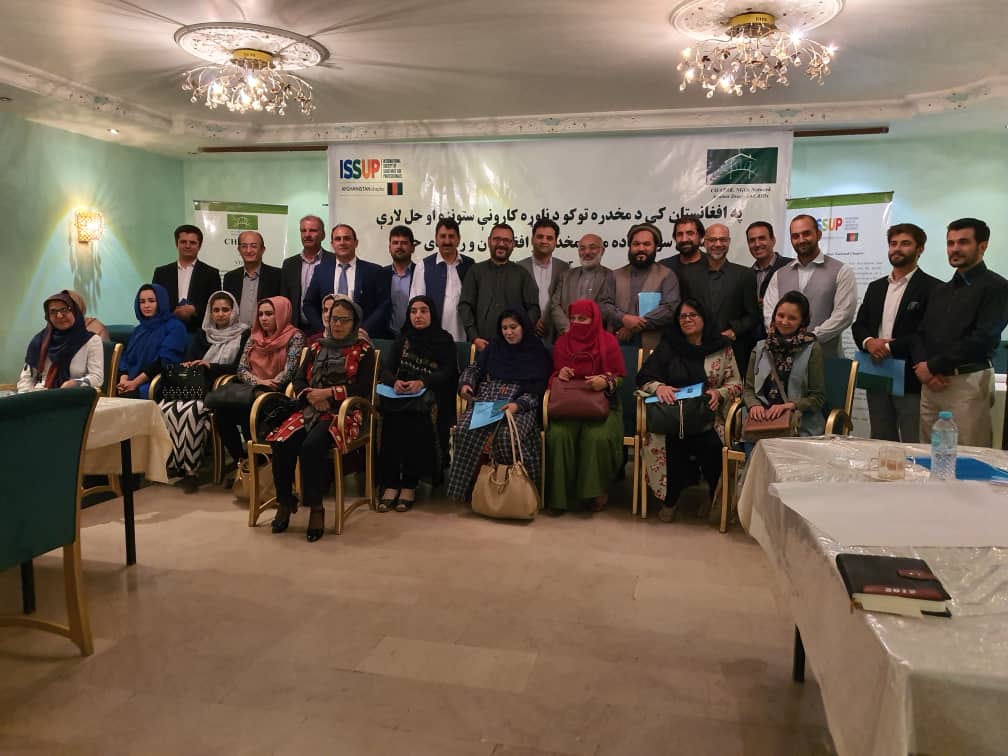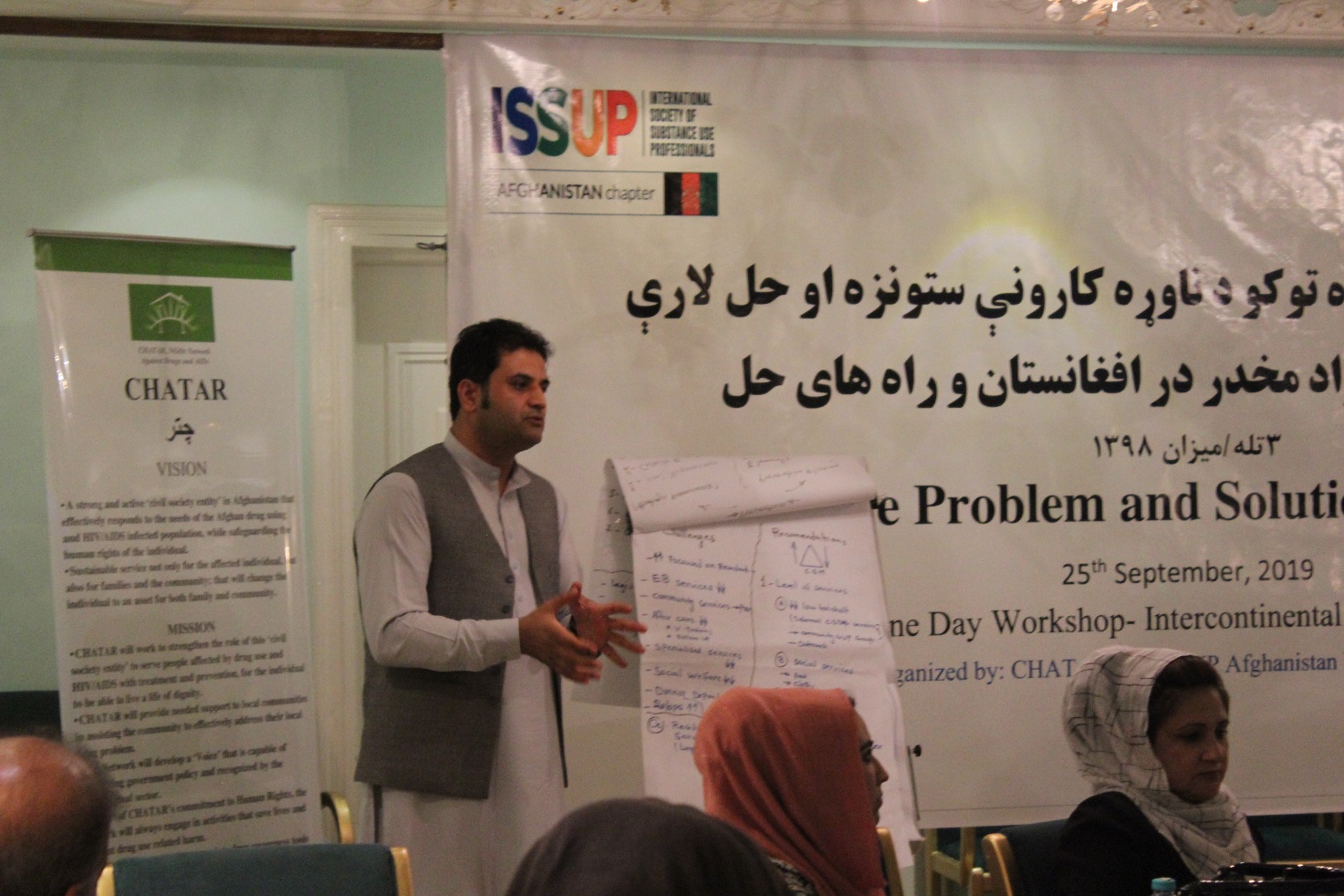During abuse, addiction and related concerns have been an increasing burden on Afghan society which need immediate and comprehensive response through a well-coordinated and multidimensional platform. Based on the recent available data, up to 3.6 million Afghans have been tested positive for drug use, this indicates that around 11 percent of Afghan population are under direct threat and need inclusive consideration. From the other side, conflicts, poverty, corruption, unemployment and the raising poverty have all been involved in deteriorating the living condition of Afghans and these all in turn put at risk the future of Afghans.
We, at this time are in a crucial moment of electing a new government and there are hopes for constructive changes in governance and responsiveness to the crucial needs of the population. The question of drug supply and demand reduction is still unclear and the professional community and relevant organizations are skeptical about the policies and future plans of presidential candidates and their teams. Given the situation above, CHATAR, the network of Afghan NGOs and International Society of Substance Use Professionals (ISSUP), Afghanistan National Chapter, decided to organize a professional debate of experts in drug demand reduction to analysis the current situation in drug use prevention, treatment and to come up with some recommendations to the presidential candidates and the upcoming elected government in terms of drug tragedy in Afghanistan. Based on that, around fifty experts from different governmental ministries, UNODC, Colombo Plan and other donor agencies, civil society and drug prevention and treatment centers were invited to attend this one day workshop and to share their insights concerning the issues of drug.
At the beginning, the agenda points, purposes of the workshop and the plan of the day presented by Dr. Mohammad Farid Bazger, director of Khatiz Organization for Rehabilitation (KOR) and on behalf of CHATAR, he welcomed and appreciated the participants and explained the points of focus in prevention, treatment and recommendations for the policy.
Presenting current situation and analysis of efforts made so fare in the field discussed by former deputy minister of counter narcotics Dr. Mohammad Zafar and deputy director of Drug Demand Reduction Department of MoPH, Dr. Abdul Shakoor Haidary. Dr. Zafar emphasized that in order to have visible impacts, an independent authority to tackle drug related issues should be formed under the direct supervision of the president or the vise-presidents. As, according to him, the current structures in combating drug issues have not been successful at all and this has made the situation more challenging for services delivery and professional practice.

Introduction of ISSUP Afghanistan National Chapter to the participants of the workshop was one of the main agenda points, presented by Dr Irshad Mansoor head of CHATAR. Since awareness and knowledge of the professionals in drug treatment and prevention concerning ISSUP is still very limited and there is a requirement to use these opportunities for improving the understanding of the drug treatment and prevention community concerning these issues. Therefore, comprehensive explanations on the goals and objectives of Global ISSUP and its mission and vision were provided to the participants and the process of establishing the National Chapter for Afghanistan was described. One of the critical issues in this aspect has been the membership of Afghan professional and registration of them with Global ISSUP and consequently with ISSUP Afghanistan National Chapter. Given the language barriers and lack of access to internet in Afghanistan, particularly in the rural and remote areas, it was required from the participants to play their roles in helping the field staff to build their membership and to let them know the advantages and privileges of the membership with Global ISSUP and the National Chapter.
Subsequently, according to workshop structure, the participants were divided to form five small groups and to discuss three important aspects of drug issues including prevention, treatment, and policy recommendation. They were required to come up with specific recommendations and finally present their conclusions with the entire group. Based on the practice, every group had also provided there written suggestions and it was decided to share them through a unified report with the relevant officials.
Conclusions and specific recommendations concluded in the meeting would be submitted to the relevant entities within the government.

The workshop on 'Drug Abuse Problem and Solutions in Afghanistan' on 25 September through CHATAR and ISSUP Afghanistan National Chapter also had media coverage. This is the link to one of the well-known TVs, Shamshad TV channel report on our workshop:
https://www.facebook.com/Shamshadtvnews/videos/726831917791758/?t=118
